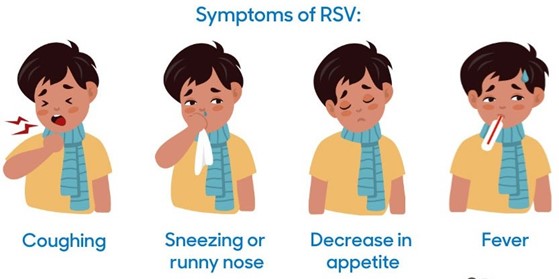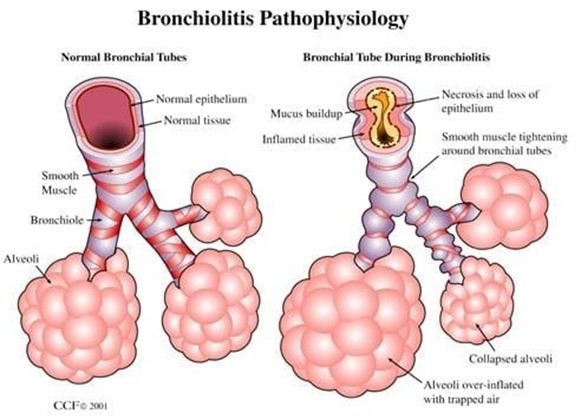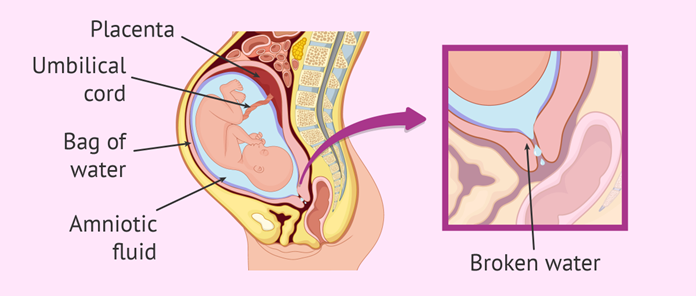The mother of a 9-month-old child who was diagnosed with respiratory syncytial virus (RSV) yesterday calls the clinic to inquire if it will be all right to take her infant to the first birthday party of a friend's child the following day. Which response should the practical nurse (PN) provide this mother?
Do not expose other children as the virus is very contagious even without direct oral contact.
Make sure there are no children under the age of 6 months around the infected child.
The child can be around other children but should wear a mask at all times.
The child will no longer be contagious, no need to take any further precautions.
The Correct Answer is A
Respiratory syncytial virus (RSV) is a highly contagious virus that can cause severe respiratory infections, especially in infants and young children. RSV is easily spread through contact with respiratory secretions from infected individuals, and can survive on surfaces for several hours. Therefore, it is important to avoid exposing other children to RSV, especially those who are under 6 months old or have a weakened immune system. The practical nurse (PN) should advise the mother not to take her infant to the birthday party to prevent the spread of RSV to other children. The PN can provide education on how to prevent the spread of RSV, such as washing hands frequently, avoiding close contact with sick individuals, and covering the mouth and nose when coughing or sneezing.

Nursing Test Bank
Naxlex Comprehensive Predictor Exams
Related Questions
Correct Answer is A
Explanation
Flaring of the nares, or widening of the nostrils, is a sign of respiratory distress in infants. It indicates that the child is working harder to breathe. This finding should alert the practical nurse (PN) that the child with bronchiolitis is in acute respiratory distress.
A resting respiratory rate of 35 breaths/minute (B) is within the normal range for a 3-month-old infant. Bilateral bronchial breath sounds (C) and diaphragmatic respirations (D) are not specific signs of acute respiratory distress in infants.

Correct Answer is D
Explanation
An increasing trend in maternal heart rate is a sign of fetal distress, which can be a serious complication of PROM. One of the primary interventions for fetal distress is to increase oxygen delivery to the fetus. The practical nurse should initiate oxygen via face mask at 8 to 10 L/min to improve fetal oxygenation.
Contact precautions may be necessary for certain conditions, but they are not indicated for an increasing maternal heart rate.
Inserting a urinary catheter may be appropriate for monitoring output, but it is not the first priority in this situation.
Encouraging the client to push is not appropriate because the client is not in active labor and pushing can cause further complications.

Whether you are a student looking to ace your exams or a practicing nurse seeking to enhance your expertise , our nursing education contents will empower you with the confidence and competence to make a difference in the lives of patients and become a respected leader in the healthcare field.
Visit Naxlex, invest in your future and unlock endless possibilities with our unparalleled nursing education contents today
Report Wrong Answer on the Current Question
Do you disagree with the answer? If yes, what is your expected answer? Explain.
Kindly be descriptive with the issue you are facing.
